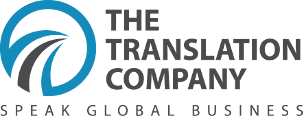
Institute of Applied Linguistics, Kent State University, Kent, Ohio
- Undergraduate
- Continuing Education
- Graduate
- Professional Studies
About the Program
Program Description
The Institute for Applied Linguistics (IAL) is a research and training unit within the College of Arts and Sciences at Kent State. Affiliated with the Department of Modern and Classical Language Studies, the Institute and its faculty coordinate the four-year Bachelor of Science Program in Translation, the 2-year Master of Arts in Translation and the Ph.D. in Translation Studies.
These translation degree programs focus on translation research skills, specialized translation, computer-assisted terminology and translation, software localization and project management for the language industry, but are also designed to provide a comprehensive foundation for skill development in humanistic translation and translation studies. The IAL?s B.S. and M.A. curricula provide a firm foundation in translation studies and translation practice for students in French, German, Japanese, Russian and Spanish while the Ph.D. program provides advanced training in translation studies and language informatics.
A center for research in translation studies and in several areas of language engineering (computer-assisted translation and terminology, multilingual document management and cross-language information exchange and retrieval), the IAL is one of America?s leading university-based translator training programs and the only comprehensive B.S. to Ph.D. program.
Bachelor of Science Program in Translation
The four Bachelor of Science degrees in French Translation, German Translation, Russian Translation, and Spanish Translation are essentially identical in program content:
Basic Language/Culture Core:
These courses provide the student with the linguistic and cultural tools (including a background in literature) to enable him/her to successfully function as a mediator between two cultures.
Translation/Business Language Courses:
These courses provide an introduction to the theory of translation and some practice in it, including courses containing specialized knowledge enabling a student to deal with modern business language and general business translation in the workplace.
Subject Area Specialty:
The Subject Area Specialty is a departmentally approved coherent sequence of courses in one or more other disciplines. The philosophy behind the Subject Area Specialty is that a translator working in today?s market cannot simply have been trained in the general areas of language, literature, and culture, but must have deeper knowledge of one or more disciplines outside the linguistic area
Master of Arts in Translation
The MA in translation with a concentration in French, German, Japanese, Russian or Spanish is intended for students who wish to pursue professional careers in the language industries e.g., in translation, localization, or language industry project management or in conjunction with other careers involving multilingual environments, such as international business, social services, or library and information science. The following courses form the core of the translation program.
SELECTED TOPICS (3) Topic to be announced in the Schedule of Classes. Repeated registration permitted when content varies.
GRADUATE RESEARCH AND WRITING Instruction and assistance with problems encountered in academic research and writing in translation studies.
DOCUMENTS IN MULTILINGUAL CONTEXTS In-depth study of the role of documents in the multilingual information cycle as manifested in word-processing, desktop publishing, and Web-based environments.
TERMINOLOGY AND COMPUTER APPLICATIONS FOR TRANSLATORS Detailed introduction to computer-assisted terminology management and a survey of applications in translation technology and language engineering.
SOFTWARE LOCALIZATION Introduction to localization and internationalization for translators.
PROJECT MANAGEMENT IN THE LANGUAGE INDUSTRY Introduction to the project management body of knowledge as it applies to language industry projects (translation and localization).
COLLEGE TEACHING OF FOREIGN LANGUAGES (1) An introduction to the current methods of teaching and testing foreign languages.
SEMEIOTICS An introduction to contemporary theories of semeiotics and to the application of those theories to linguistics, literature, translation, and technology.
Ph.D. in Translation Studies
In order to obtain the PH.D. in Translation, the student has the following list of elective seminars that he will have to attend to:
Translation Studies I
Translation Studies II
Applied Linguistics for Translation
Translation Evaluation
Translation Pedagogy and the Language Industry
Cognitive Approaches and Translation
Language Information Technology I
Language Information Technology
Internationalization
Computational Terminology and Lexicography
Meta-Markup for Multilingual Resources
Variable Topic Translation Workshops
Editor notes
Although NYU ? SCPS changes the course offerings every semester, NYU has been a major source of quality translation courses. The Translation Company recommends to students from around the globe to seriously consider NYU courses when spending time abroad to improve education.
Link
http://appling.kent.edu/index.html
Contact Information
Institute for Applied Linguistics, 314 Satterfield Hall.
Phone: 330 672 1792
Email addresses: http://appling.kent.edu/faculty.html

